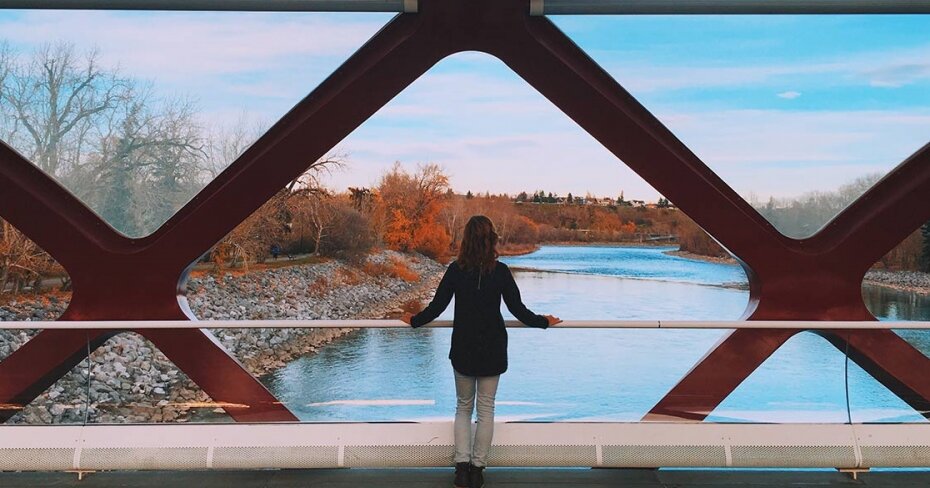How Calgary’s recession changed personal finance for my friends and I
By: Alyssa Fischer on February 1, 2017
It was about two years ago when I noticed my hometown, Calgary, was changing in a big way.
My friends and family were less interested in big nights out and more interested in small nights in. It was the beginning of something that I’d hear more and more about in the coming years: recession.
In case you didn’t know, a crash in oil prices that began in 2014 continues to affect Calgary and many parts of Alberta. There have been cutbacks in business spending, layoffs and an ongoing decline in housing prices in the city.
Sticking to a budget and keeping your finances healthy are challenging enough in a regular economic cycle. But you’re playing on hard mode when a recession hits. Here’s a look at how Calgary’s slowdown has impacted the lifestyles of my friends and I.
Calgary in the boom days
About five years ago, when the city was hitting its peak, I was serving at The Keg and going to university full-time. Anyone in the service industry back then was doing well — especially when it came to tips. Plenty of rig workers would come into restaurants like ours on weekends to spend their money.
I remember serving a table of three guys (wearing matching plaid, mind you) on a Tuesday night. They ordered two bottles of Dom Pérignon, three Glenfiddich neat, and three 16-ounce prime ribs.
Again, this was a Tuesday.
They ordered two bottles of Dom Pérignon, three Glenfiddich neat, and three 16-ounce prime ribs — on a Tuesday
This kind of weekday splurging wasn’t unusual. Calgarians had no problem spending lavishly on dining experiences and social outings.
Jill Clark, a 23-year-old who works in the valuation and appraisal department of an international real estate company, recalls the ‘boom days’.
“There was an optimism about the city that kept its young adults, like myself, lively and always wanting to go out and do something,” she says.
But a lot of people weren't prepared for what came next.
When the oil crash hit town
Jill remembers the feeling that many of us shared when the city's atmosphere shifted from carefree to careful.
“It's like a dark cloud that follows you around, threatening [your] hopes for becoming a self-sustaining adult (or at least trying to),” she says.
Imagine bringing your biggest winter coat to the bar expecting to wait in line for a good 20 minutes, but instead strolling right into an empty dance floor.
Imagine calling to book a reservation at your favorite restaurant, only to discover that it went out of business a month ago.
It's like a dark cloud that follows you around, threatening [your] hopes for becoming a self-sustaining adult
Imagine getting your first credit card bill after running out of severance payments.
According to Statistics Canada, Alberta’s unemployment rate hit 9% this past November — the highest it’s been in more than 22 years.
So it’s no surprise that people’s money views have significantly shifted in our city. Gone are the days of blowing hundreds of dollars on a Friday night, and gone are the days of buying a snowmobile to match your ATV.
Instead, families are focusing on making minimum payments and living within their means. Many have even sold their homes and downsized in anticipation of things getting worse.
So here’s the new reality — less spending, more saving
Albertans learned that financial emergencies can strike at any moment.
Facebook feeds went from articles touting “fun things to do this weekend” to “free things to do this weekend”. People became more interested in how to manage their money, how to live a frugal life, and what to do in the face of unemployment.
For recent postsecondary graduates, reality set in pretty quick. Including for my best friend, Mackenzie, a Land and Water Reclamation major, who moved to Vancouver in hopes of finding work.
“Finding a job in my field is not as easy as it used to be for post-grad students in Calgary,” she says.
According to Statistics Canada, Alberta’s unemployment rate hit 9% this past November — the highest it’s been in more than 22 years
Although most of my friends have bounced back — tackling a new career, getting a second education, or making a lower-paying job work — not everyone can say the same.
Part of the reason I started paying closer attention to my own money was because I knew that in this new volatile economy, nothing is ever permanent.
I started my blog, Mixed Up Money, to hold myself financially accountable, and it’s blossomed into more than I ever imagined. In just two short years, I’ve been able to pay off all of my debts, refocus my long-term financial goals, make some extra money, and help a ton of close friends along the way.
Sometimes booms lead to busts. But sometimes, it can go the other way, too.


